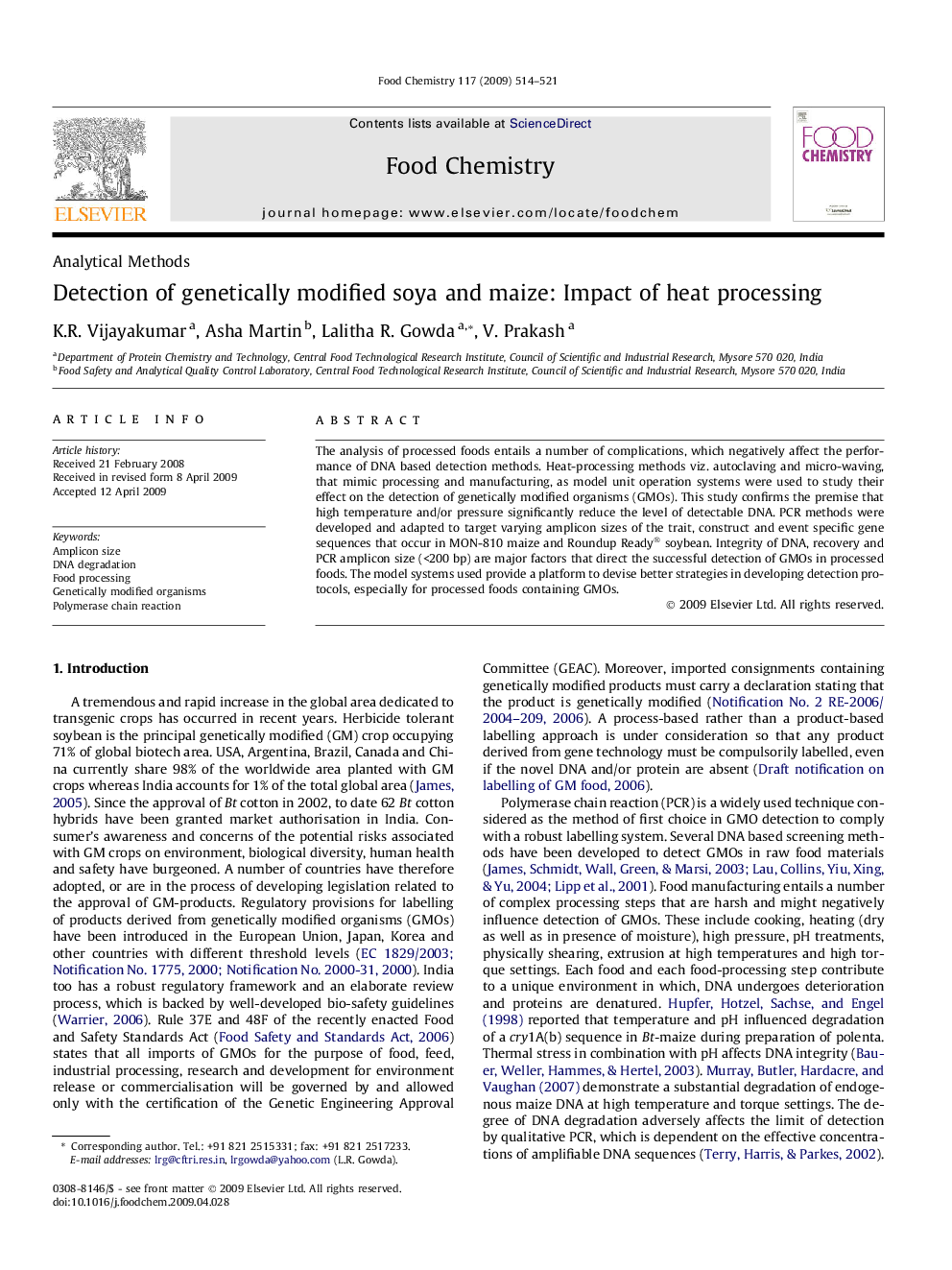| Article ID | Journal | Published Year | Pages | File Type |
|---|---|---|---|---|
| 1188287 | Food Chemistry | 2009 | 8 Pages |
The analysis of processed foods entails a number of complications, which negatively affect the performance of DNA based detection methods. Heat-processing methods viz. autoclaving and micro-waving, that mimic processing and manufacturing, as model unit operation systems were used to study their effect on the detection of genetically modified organisms (GMOs). This study confirms the premise that high temperature and/or pressure significantly reduce the level of detectable DNA. PCR methods were developed and adapted to target varying amplicon sizes of the trait, construct and event specific gene sequences that occur in MON-810 maize and Roundup Ready® soybean. Integrity of DNA, recovery and PCR amplicon size (<200 bp) are major factors that direct the successful detection of GMOs in processed foods. The model systems used provide a platform to devise better strategies in developing detection protocols, especially for processed foods containing GMOs.
